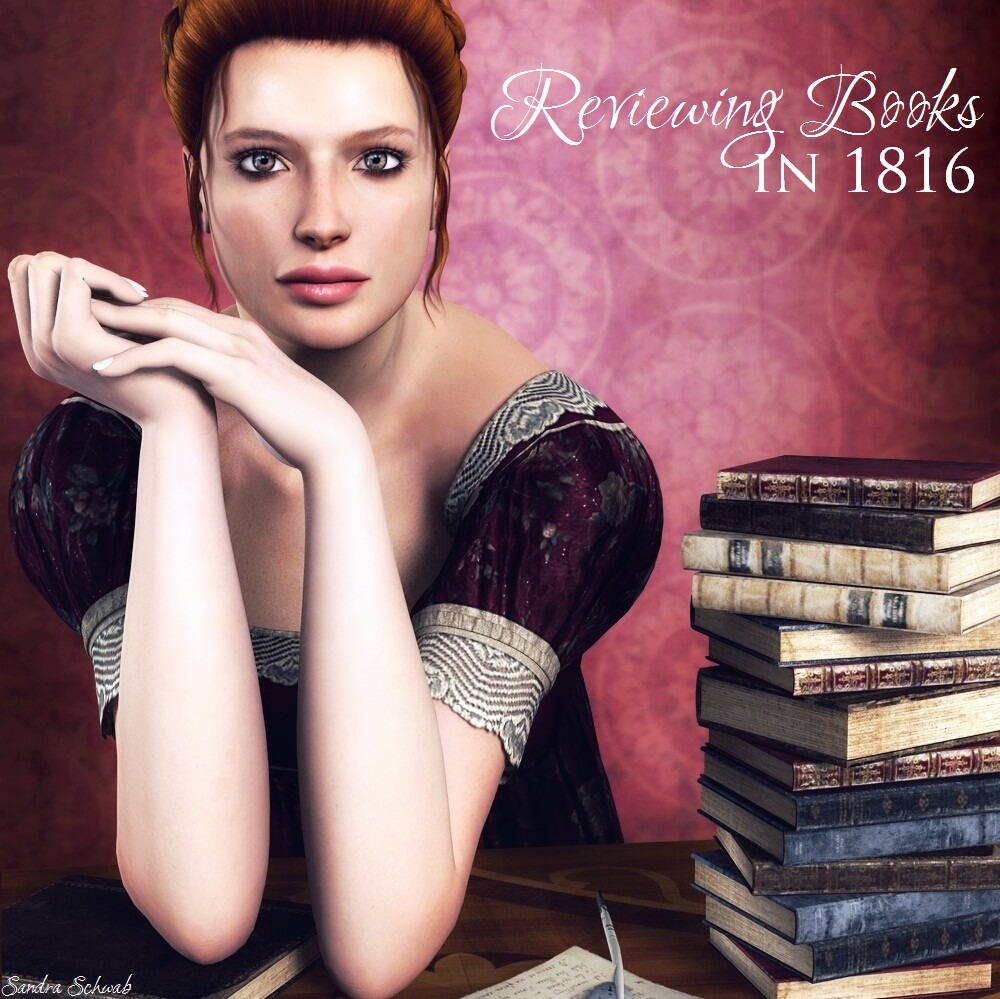Are you a reader with a most impressive number of reviews on Goodreads? Do you run a book blog or write for a review site? Do you LOVE talking about books? But do you worry what would happen if you traveled to Scotland, admired some pretty stone circle, and quite accidentally tumbled 200 years into the past?
Never fear! I have a few most excellent tips for you so you won’t have to forgo reviewing books even while trxing to navigate the delicate politics of Regency ballrooms! In the growing bookmarket of the early 19th century yours will be a welcome new voice!
You are a woman and you fear reviewing books might forever ruin your reputation and destroy all your chances of Mr. Darcy ever sparing you a glance? Rest assured, there is no need to worry as reviews are published anonymously in the periodical press.
Now let’s see what kind of magazine would suit your reviewing style best.
Do you like to write really long (REALLY long) reviews? Then I suggest you try a literary quarterly. You’ve got three months between issues so be prepared to really delve into a book. Reviews of potentially popular books by eminent authors should not be shorter than 30 pages (for new novels by Britain’s most beloved authors such as the author of Waverley, consider 50 pages a bare minimum – though reviews can be published in installments). You may insert large chunks of text and may summarize the rest of the novel to allow people who don’t have the patience to read a complete three-decker (that’s three-volume) novel (or who don’t have the money to buy all three volumes) may still form an opinion on the novel and discourse freely about the plot and the principal characters.
If you prefer slightly shorter reviews, a monthly magazine might suit you better. Monthly magazines are also most suitable for those of you who’d like to review musical publications, including sheet music. The June 1816 issue of The Gentleman’s Magazine includes reviews on Complete Instructions for the Harp (by J.B. Msyer, Professor of the harp), A Dictionary of Musick (by J. Bottomly) (what a most delightful name!), and The Comet Waltz, “arranged as a Rondo for the Pianoforte or Harp. pp. 4”:
“This rather pleasing Air is eked out into a rondo with little skill, forming a lesson that may interest learners, and requiring very little power of execution.”
Oh dear. I guess that is a case of damned with faint praise…
If you must criticize a work, this is an acceptable way of doing so. However, in general it is adviceable to refrain from writing too critical a review. After all, your main aim is to suggest to your readers wbich books they ought to read. If you timetravel to 1817 or a later year, this advice is no longer valid: When William Blackwood launched his Blackwood’s Edinburgh Magazine in 1817, he introduced the snark to literary criticism. Consider the following snippet from the review of Harold the Dauntless: A Poem:
“This is an elegant, sprightly, and delightful little poem, written apparently by a person of taste and genius,but who either possesses not the art of forming and combining a plot, or regards it only as a secondary and subordinate object. In this we do not widely differ from him, but are sensible, meantime, that many others will; and that the rambling and uncertain nature of the story, will be the principal objection urged against the poem before us, as well as the greatest bar to its extensive popularity.”
Ouch.
That kind of snark, combined with attacks on such literary icons as Byron, proved to be a most excellent marketing strategy and made the reputation of the magazine across the English-spesking world. Indeed during the early years of its existence, Blsckwood’s paid a small fortune in libel damages. Ooops.
But evidently, this kind of notoriety served its purpose: everybody was talking about Blackwood’s, and it ran until 1980. Not too bad, eh?

